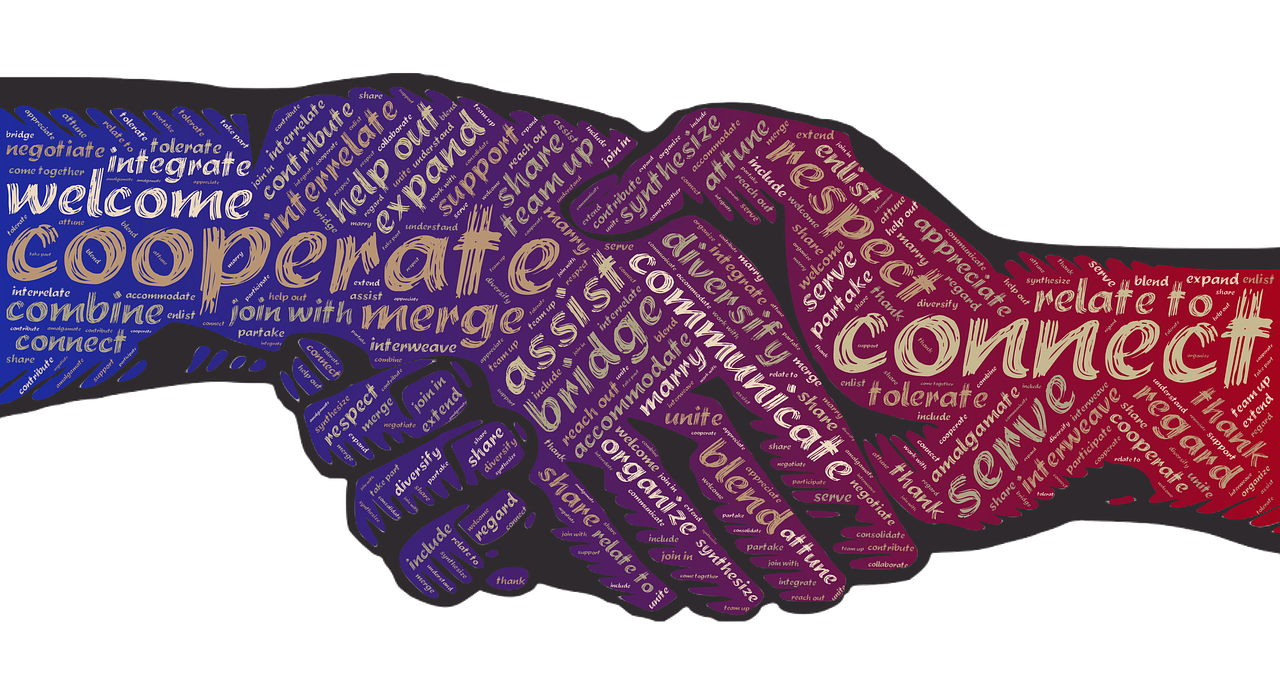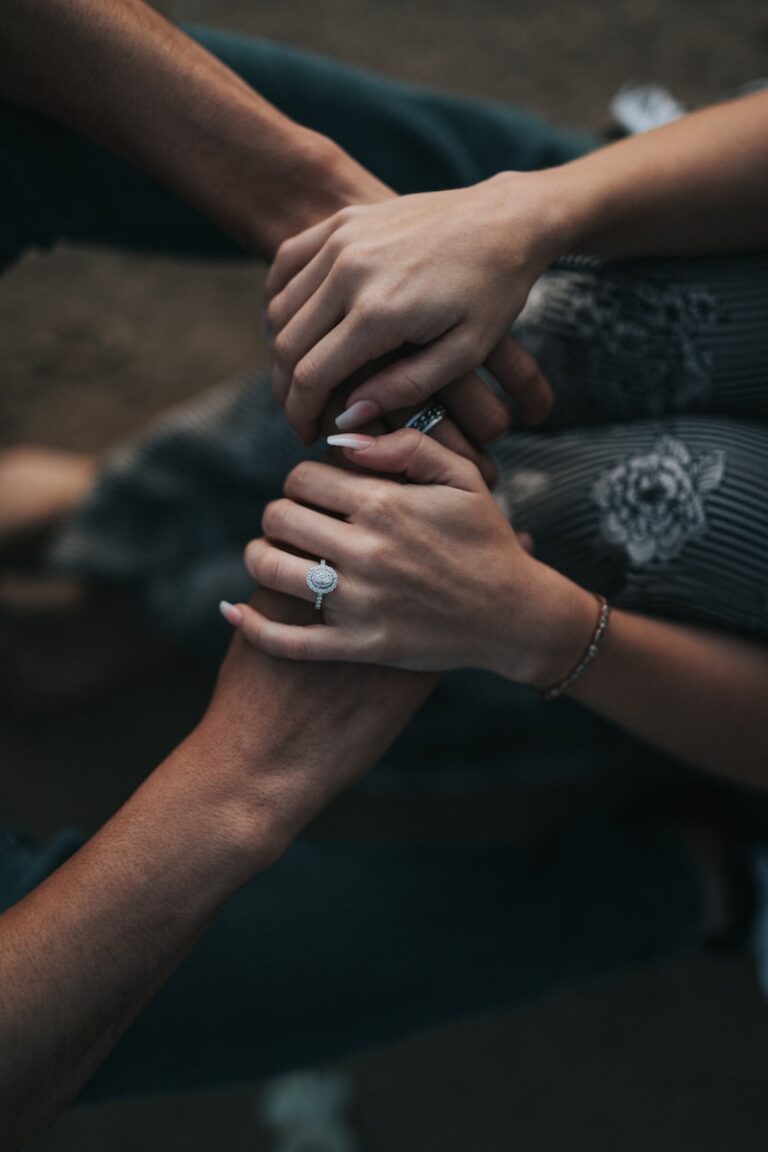Discover how to find a partner who respects and upholds equal roles in a relationship. Learn self-reflection, communication, and red flags to watch out for.
Introduction
The Importance of Finding a Partner Who Respects and Upholds Equal Roles in a Relationship
As we navigate the world of dating and relationships, it’s important to consider what we truly want out of a partnership. While there are many qualities that may be desirable in a partner, one that stands out as increasingly important is a dedication to equality.
For centuries, traditional gender roles have been perpetuated by society, resulting in unequal power dynamics between men and women in relationships. However, with the rise of feminism and increased awareness around issues of gender inequality, many people are seeking partners who uphold equal roles in their relationship.
Finding a partner who respects and upholds equal roles in your relationship can have numerous benefits. First and foremost, it creates an environment where both individuals feel valued and respected for their contributions to the partnership.
This can lead to increased feelings of intimacy, trust, and overall satisfaction within the relationship. In addition to personal benefits, seeking out an equal partner can also have larger societal implications.
By rejecting traditional gender roles within our own partnerships, we contribute to a larger cultural shift towards greater gender equality. This is especially true if we choose to raise children within this framework – by modeling equality in our own lives, we can help shape future generations who also value these principles.
Overall, finding a partner who respects and upholds equal roles is not only beneficial for us as individuals but also for society at large. In the following sections of this article, we will discuss specific strategies for identifying potential partners who share these values as well as red flags to watch out for when seeking an equal partnership.
Self-reflection
Assessing personal values and beliefs about gender roles in relationships
Before embarking on a journey to find an equal partner, it is essential to assess personal values and beliefs about gender roles in relationships. It is important to ask oneself questions such as, “Do I believe that women should be responsible for all the household chores?” “Do I think that men should be the sole breadwinners?” These questions help us understand our expectations of our partners.
It’s crucial to understand these expectations because they influence how we interact with a potential partner. If we come into a relationship with unequal expectations, it sets the tone for inequality from the beginning.
Instead, by examining our own beliefs and values around gender roles, we can be more self-aware when looking for a partner who shares similar views. Furthermore, self-reflection helps us become more conscious of biases we may have internalized unknowingly.
These biases can lead us to overlook red flags or dismiss problematic behavior from potential partners. It’s essential to recognize these unconscious biases so that they don’t hinder our search for an equal partner.
Assessing personal values and beliefs around gender roles in relationships is critical before starting a search for an equal partner. This introspection helps us become more self-aware of our own expectations and biases while also setting the foundation for seeking out an equitable partnership with someone who aligns with those ideals.
Communication is Key
When it comes to finding a partner who respects and upholds equal roles in a relationship, communication is key. It’s important to not only openly discuss your expectations and boundaries with potential partners, but also pay attention to how they communicate and respond to discussions about equality.
One way to start the conversation about equality in a relationship is by asking your partner what they believe are the most important aspects of a healthy and respectful partnership. This can lead into a deeper discussion about what each of you values in terms of gender roles, responsibilities, and expectations.
It’s also important to listen actively when your partner speaks. Pay attention to not only their words, but also their tone and body language.
If they seem uncomfortable or defensive when discussing equality or dismissive of your concerns, this could be cause for concern. Healthy communication involves both parties feeling heard and respected.
Openly Discuss Expectations and Boundaries
Another aspect of communication when it comes to finding an equal partner is being open about your expectations and boundaries from the very beginning. This can prevent misunderstandings down the line that could potentially lead to unequal treatment. For example, if you prefer an equal division of household chores, make this clear early on in the relationship.
If you’re uncomfortable with traditional gender roles being imposed on either person in the partnership, make that known as well. Discussing these topics early on can help ensure both partners are aware of each other’s expectations and can work together toward creating a healthy balance in the relationship.
Paying Attention Matters
Paying attention to how your potential partner communicates around issues related to equality can be very telling. Do they use inclusive language? Are they open-minded?
Do they truly listen when you speak? If someone truly respects equality within relationships, then their actions will match their words.
They’ll show respect for different perspectives while also being willing to have tough conversations when necessary. In short, communication is key when it comes to finding a partner who values equality in all aspects of the relationship.
Be open and honest about your expectations and boundaries, while also paying attention to how your partner communicates. Remember that respect should be mutual and that finding an equal partner takes time and effort.
Actions speak louder than words
Finding a partner who upholds equal roles in a relationship is more than just having conversations about your beliefs and values. It’s also important to observe how they actually behave in their daily life. Actions speak louder than words, so pay attention to how they treat others in their lives, such as friends, family, and coworkers.
If your potential partner perpetuates harmful gender stereotypes or exhibits controlling behavior, it is likely that they will carry over those behaviors into the relationship. On the other hand, if they treat everyone with respect and equality, it’s a good sign that they will do the same for you.
Observing how they treat others in their life
Take note of how your potential partner treats people who are important to them outside of the relationship. Do they have deep and meaningful relationships with people of all genders?
Do they respect boundaries and listen actively when someone speaks? These are all great indicators of how they approach relationships.
It’s also important to watch out for any red flags. For example, if you notice that your potential partner doesn’t value the opinions or experiences of women or marginalized groups, then it might be a sign that there could be trouble ahead.
Noticing if they take on equal responsibilities in shared activities or tasks
In order for a relationship to be truly equal, both partners need to take on equal responsibilities. Pay attention to whether your potential partner takes initiative when it comes to shared tasks and activities.
Are they willing to share housework equally? Do you feel like you’re always doing more work than them?
If you notice any imbalances early on in the relationship, address them directly with your partner before things become too difficult to fix. This will help ensure that both partners feel valued and respected throughout the entire course of the relationship.
Remember: finding a partner who respects and upholds equal roles in a relationship starts with finding someone who practices what they preach. By observing their actions and behaviors, you can gain insight into their true character and whether or not they’re the right fit for you.
Shared Interests and Goals
As we continue our journey to find a partner who respects and upholds equal roles in a relationship, it’s important to focus on finding common ground on values related to equality. Supporting women’s rights and advocating for LGBTQ+ rights are some of the crucial values that can serve as a strong foundation for any healthy relationship.
When finding commonalities among each other, we should pay attention to the actions of our potential partners. Are they vocal about their support for these causes?
Do they take action in supporting organizations or attending events that promote these values? It’s essential to ensure that their words align with their actions before deciding whether they are a good match.
Finding Common Ground on Values Related to Equality
In addition to shared values about equality, partnering with someone who respects diverse perspectives becomes essential as well. It is much easier to build shared goals when we have common interests; this can be in forms of hobbies, career aspirations, or even travel experiences. Finding areas of overlap helps highlight the things you both want out of life and what you hope your future will look like.
The great thing about discussing shared interests is that it provides an opportunity for you both sides reveal more about yourselves. It can also help identify possible strengths and weaknesses in each other early on in the relationship, so there are no surprises down the line.
Discussing Future Plans and Goals For The Relationship That Align With Mutual Respect And Equality
A vital aspect of maintaining mutual respect and equality within relationships is having clear communication about future plans and goals for your partnership. Each partner must have an active role in decision-making processes around major events such as family planning or relocation. Talk openly with each other about what you hope your future holds concerning career aspirations, hobbies, and lifestyle choices.
When discussing these topics, consider how helping each other achieve personal and collective goals will look like. This kind of open and honest communication sets the pace for a healthy relationship that supports mutual growth with equal partnership in mind.
Red Flags to Watch Out For: How to Spot a Partner Who Doesn’t Respect Equality
Finding a partner who respects and upholds equal roles in a relationship is crucial for building a healthy and fulfilling partnership. Unfortunately, not everyone holds this same value, and it can be challenging to spot red flags early on in a relationship. However, paying attention to certain warning signs can save you from ending up with someone who doesn’t respect your opinions or boundaries.
One major red flag to watch out for is controlling behavior. A partner who tries to dictate what you wear, who you spend time with, or how you behave is not respecting your autonomy.
This kind of behavior is often rooted in the belief that one partner should have power over the other, which goes against the principles of equality in a relationship. Paying attention to how your potential partner treats others can also give insight into whether they have controlling tendencies.
Disregard for your opinions is another sign that someone may not value equality in the relationship. If they consistently talk over you or dismiss what you have to say without consideration, it’s an indication that they don’t believe your thoughts are as valuable as their own.
It’s essential to be with someone who listens attentively and values your perspective equally. Language and actions that perpetuate harmful gender stereotypes are also something to look out for when trying to find a partner who values equality.
If they make derogatory comments about women or people of different races or sexual orientations, it’s an indication that they don’t hold respect for all individuals equally. It’s important not only to listen but also observe their behaviors towards people from different backgrounds than their own.
Conclusion: The Importance of Finding Someone Who Values Equality
Finding someone who values equality is fundamental when searching for a long-term partnership. Paying attention to potential red flags early on can save heartache down the line.
Be aware of controlling behavior, disregard for your opinions, and language and actions perpetuating harmful gender stereotypes. Finding a partner who values equality in all aspects of the relationship will lead to a healthy and fulfilling partnership where both parties feel respected and valued.
Conclusion: Finding Equality in a Relationship
The Importance of Finding a Partner Who Values Equality
Finding a partner who values equality is crucial for building a healthy and fulfilling relationship. When both partners share equal responsibility and respect each other’s boundaries, it can lead to better communication, trust, and mutual understanding.
It’s important to remember that every relationship is unique, so finding the right balance of shared values and goals can take time. However, it’s worth the effort to find a partner who upholds equality in all aspects of your relationship.
Challenging Gender Stereotypes
In order to find a partner who values equality, it’s important to challenge traditional gender stereotypes. Society often reinforces rigid gender roles that assign specific expectations for men and women in relationships.
However, these stereotypes can be harmful and limit personal growth for both partners. By rejecting these stereotypes and embracing individuality, couples can build more meaningful relationships based on mutual respect and equality.
Nurturing Equality in Your Relationship
Once you’ve found a partner who shares your commitment to equality in your relationship, it’s important to nurture that bond through ongoing communication and honest conversation. By regularly checking in with each other about shared responsibilities or concerns about power imbalances, you can build trust over time.
Additionally, make sure that you’re actively supporting one another’s dreams and goals in life – whether they relate to work or personal pursuits. Finding a partner who respects equal roles in relationships takes effort but is ultimately worth it for the mutual benefits of happiness, fulfillment, trustworthiness ,and love.
Through self-reflection on personal beliefs about gender roles , open communication with potential partners ,watching out for red flags ,and building upon shared interests an equal partnership built on mutual respect can be achieved . By challenging traditional gender stereotypes and regularly nurturing your relationship, you can build a strong and lasting bond that is rooted in equality.






